Kylie Minogue: How our obsession is driving her success
- Published
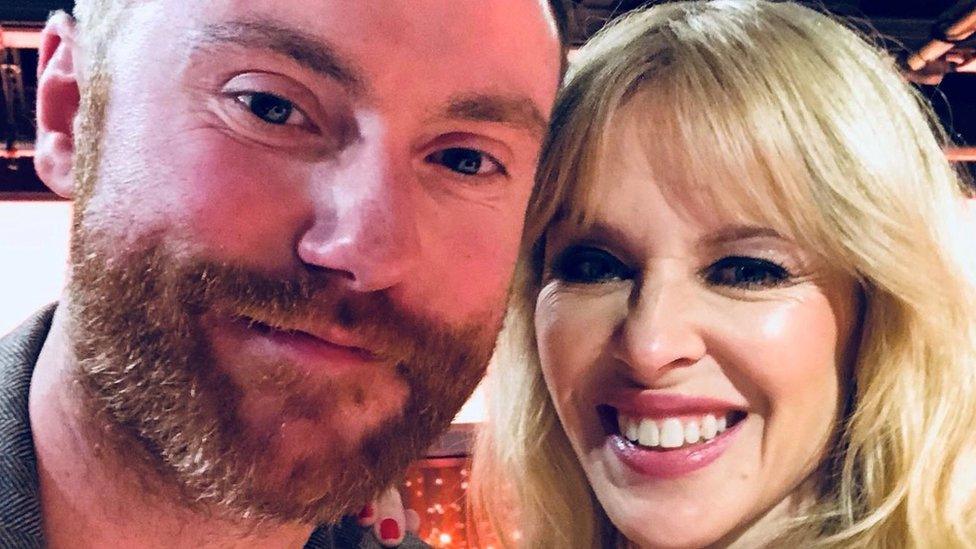
Simon met Kylie last year
Thirty-three years ago. That's when Kylie Minogue first entered my life - and that of millions of teenagers - in the Australian soap Neighbours. It's hard to believe it's that long ago.
I watched her marry Scott Robinson (Jason Donovan) in 1988, alongside 20 million others.
I dread to think how many times I watched it on VHS. But looking back, it was early evidence that I, alongside the British public, had already taken Kylie to my heart and that she had real marketing appeal.
More than three decades later, public affection for our adopted "pop princess" shows no sign of wavering after Sunday's storming set on Glastonbury's Pyramid Stage.
After appearing on stage to a blaze of Pride colours and mirrors - even Kylie seemed overwhelmed by the size of the crowd that had come to watch.
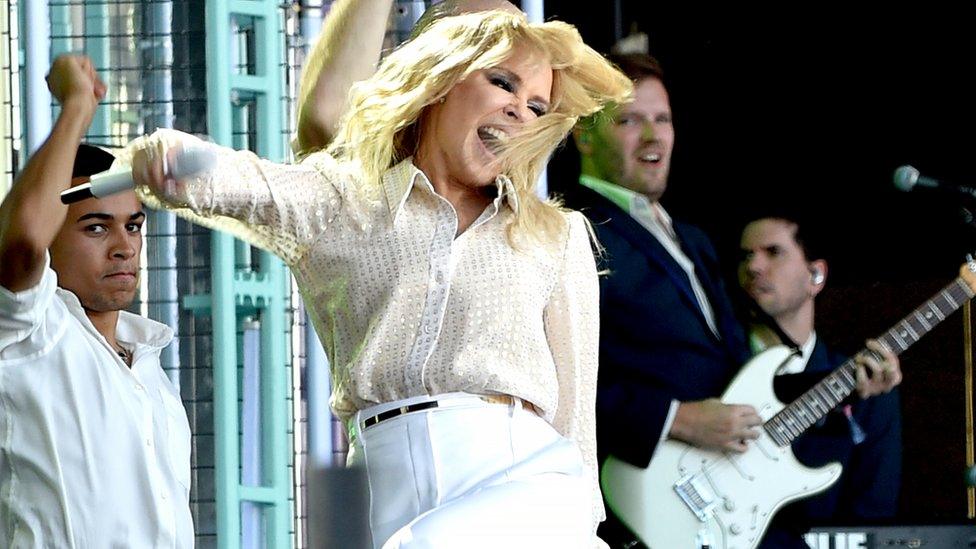
Kylie's Glastonbury appearance will spark interest from brands
"I've never seen a crowd like it. Ever. Everybody loves Kylie. You could feel it," BBC Music presenter Lauren Laverne said after Kylie came off stage.
It's exactly how I felt when I met Kylie last year when I was working at BBC Breakfast. She was as nice in real life as she appears on stage: kind, accepting and smiling.
But it takes more than niceness to achieve a music career that spans 30 years, an incredible feat when pop music can be transient and fleeting for many musicians.
To date, there have been;
seven UK number one singles
six number one albums
34 UK top 10 singles
How has she done it?
Building a career with such longevity is about more than just pop music, it is also about being a shrewd and clever businesswoman who is able to constantly reinvent herself.
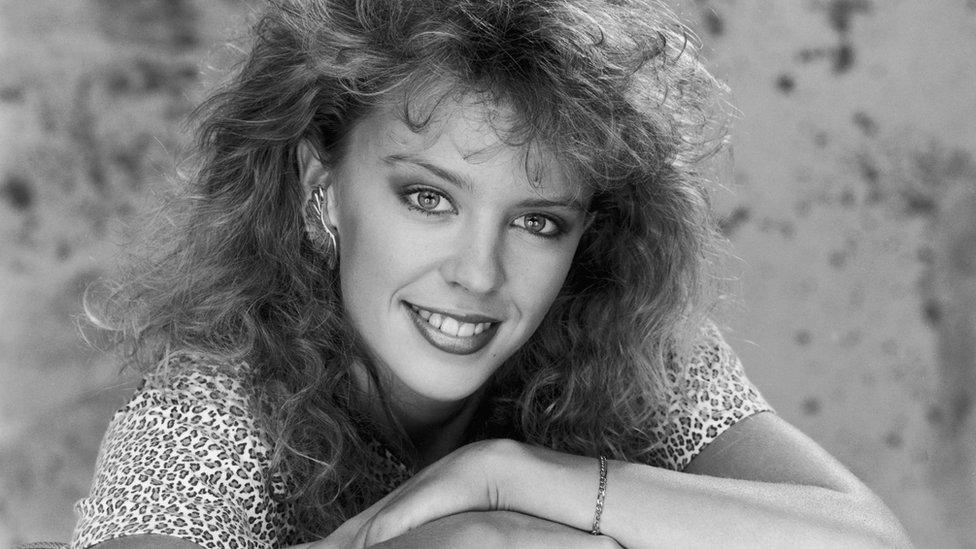
Kylie shot to fame as Charlene in Australian soap Neighbours
Kylie's career has seen many guises from squeaky teenage soap star, to a pop hit machine with Stock Aitken and Waterman (I Should Be So Lucky, Hand on Your Heart, Better the Devil You Know), to "indie Kylie" (Confide in Me, Where The Wild Roses Grow) and into "disco Kylie" (Spinning Around, Love at First Sight, Can't Get You out of My Head).
The Glastonbury appearance was just her latest reinvention.
It hasn't been easy the whole time. There has been music that didn't resonate with the wider public outside her fan base and periods when Kylie was simply not cool.
"She was unfashionable after Stock, Aitken and Waterman and at times it seemed like she was trying to find herself," says Jo Elvin, editor of You Magazine.
"But she has real resilience. That's what people like. It took her a while to realise that being a pop princess was cool. When she accepted that, it's when her own confidence evolved and everyone said 'we love Kylie' and she became a national treasure."
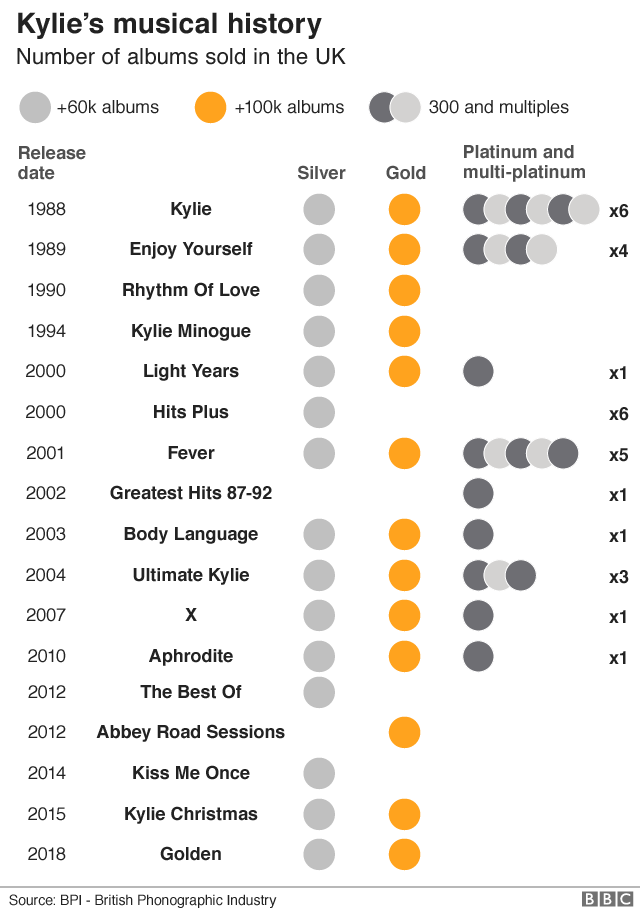

The Glastonbury performance was partly about Kylie making sure she stays relevant, says Amy Thomson, a music artist manager and part of the Grammy Recording Academy.
"It was a triumph - but it was also about her reinvesting in her future. People are talking about her again today. Brands will be talking about her again. Businesses will want to talk to her."
Unpromising beginnings
But while I have always been a fan since her early days (my first seven-inch single bought from my local Asda was 'Locomotion'!) not everyone was convinced.
"If you looked at the start of her career, on paper, it looked short-lived," says Eamonn Forde, a music business journalist.
He says her being picked up by Parlophone, alongside Coldplay, at the end of the 90s sparked a huge change in how seriously she was taken.
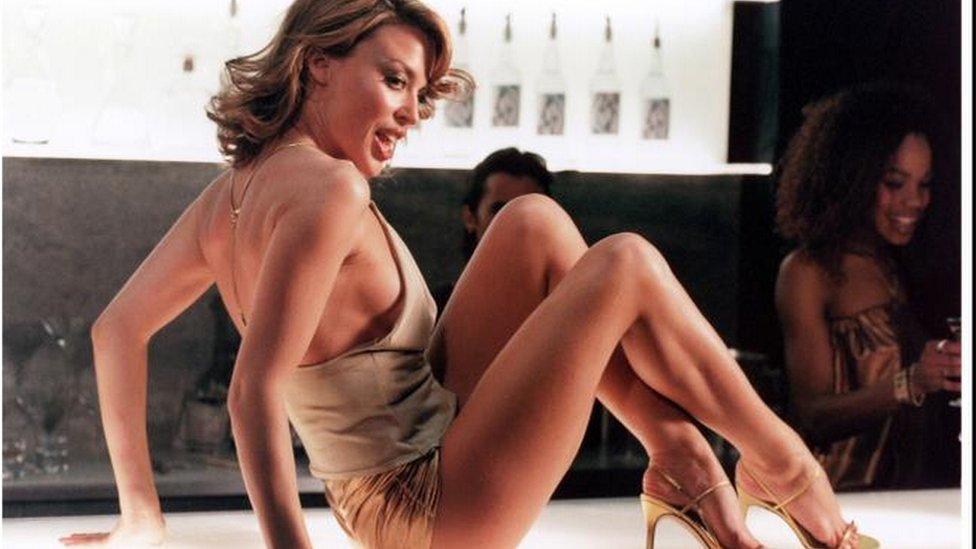
"Spinning Around" and those gold hotpants sparked another reinvention
By the dawn of the millennium Kylie reinvented herself again, with Spinning Around and her biggest single ever - Can't Get You Out of My Head.
It's a reinvention that was well received when I witnessed her play at Privilege nightclub in Ibiza wearing those legendary gold hotpants. "We loved it".
But Mr Forde says these tunes were not just "throw-away pop songs" but the start of a new performance era.
"It began a very clever, well thought out progression and the start of huge shows that were and still are an incredible spectacle."
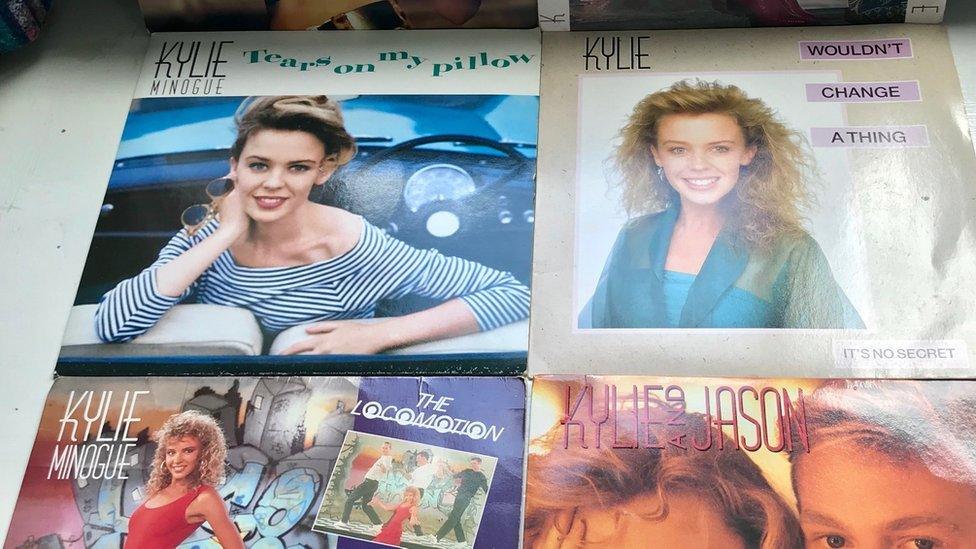
Simon has collected all Kylie's albums
For a majority of artists now, these shows are the main money-spinner out of everything they do.
People come to these shows and pay good money for their tickets, to see a performer - and that's what you get with Kylie. I should know, it's the reason I keep going back. I think I'm at 12 shows now.
"As much art is involved in writing songs as there is in performing them. Kylie might not write them all. But a great performer can take a great song somewhere else. People buy into that. And they buy into her," adds Mr Forde.
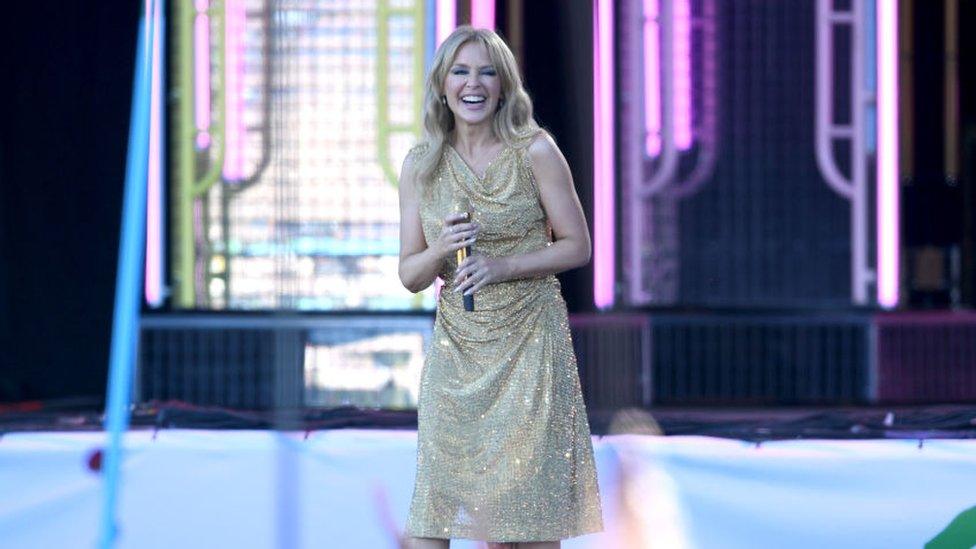
People who work with Kylie have praised her professionalism
Being a pop star is also about looking good, something that Ms Elvin acknowledges Kylie has done - and continues to do very well.
But Ms Elvin says it is Kylie's professional approach to work which has really made her stand out.
"Kylie understands she is the pop person there to do her bit. She understands it's business. There are no big pop star dramas."

Kylie has launched a glasses collection with Specsavers
There are no reliable statistics, but being a pop star has obviously brought Kylie substantial riches. Music releases and arena tours have helped her amass sizeable wealth.
But her brand power is also a big part of her income. She has partnerships with opticians chain Specsavers and her own range of bedding, and has also done very lucrative private appearances for families and businesses in the Middle East.
Power secret
How broad the Kylie brand stretches was apparent in the crowd watching her performance at Glastonbury.
It was a complete cross-section of the population. Yes, the LGBT community, which believes it has adopted her, was there in force, but so were parents, children, guys and gals singing in the sunshine.
"In a music genre all about youth, she's there and taking every audience with her all at once", adds Mr Forde.
"She's not afraid to talk honestly and openly and just be genuinely herself. That's her power."